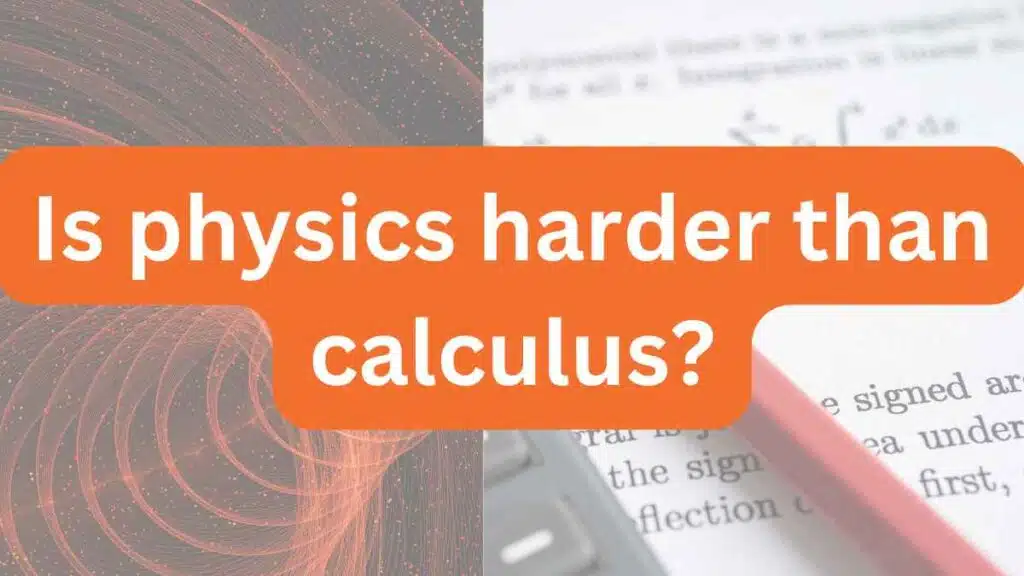Is physics harder than calculus?
Physics is generally considered to be more difficult than calculus. This is because physics requires a rigorous understanding of both physics concepts and calculus. In contrast, calculus can be learned without a deep understanding of physics. just write these lines again

What is Physics?
Physics is the study of matter, energy, and the fundamental forces that shape the universe. It seeks to explain the phenomena we observe in the natural world, from the behavior of subatomic particles to the motion of planets. Concepts such as Newton’s laws of motion, electromagnetism, and quantum mechanics fall within the realm of physics.
Theoretical Physics
Theoretical physics delves into the abstract and theoretical aspects of the universe. It involves formulating hypotheses and creating mathematical models to explain natural phenomena. String theory, black holes, and the nature of time are examples of theoretical physics topics.
Practical Applications
Physics finds applications in numerous industries, including engineering, medicine, and technology. From designing bridges to understanding the behavior of light, physics plays a crucial role in shaping our modern world.
What is Calculus?
Calculus is a branch of mathematics focused on rates of change and accumulation. It consists of two main branches: differentiation and integration. Differentiation involves finding the rate of change of a quantity, while integration deals with calculating the accumulation of quantities.
Differentiation and Integration
Differentiation helps us analyze how quantities change concerning one another. Integration, on the other hand, allows us to find the total accumulation of quantities over a given interval. These concepts are essential in understanding motion, growth, and change in various fields.
Real-Life Applications
Calculus has widespread applications, from engineering and economics to biology and physics. It enables us to model complex systems, predict outcomes, and optimize processes.
Comparing Complexity
Conceptual Difficulty
Physics often presents conceptual challenges, as it requires understanding abstract ideas that may not directly correlate with our everyday experiences. The concepts of relativity and quantum mechanics, for instance, can be mind-boggling.
Mathematical Rigor
On the other hand, calculus demands a strong foundation in mathematical rigor. Manipulating equations, solving intricate integrals, and grasping the nuances of limits can be mentally demanding.
Perception and Preconceptions
Common Misconceptions about Physics
Physics is sometimes misunderstood as purely theoretical, with no practical implications. In reality, physics drives technological advancements and scientific breakthroughs.
Stereotypes about Calculus
Calculus is often seen as reserved for only the most brilliant minds, creating a misconception that it’s insurmountably difficult. However, with proper guidance and practice, calculus can be mastered by anyone.
Skillset and Mindset
Analytical Thinking in Physics
Physics demands analytical thinking and the ability to connect abstract concepts. It encourages problem-solving through creative reasoning.
Problem-Solving in Calculus
Calculus emphasizes systematic problem-solving. It requires breaking down complex problems into manageable steps and applying mathematical techniques to solve them.



Leave a Reply